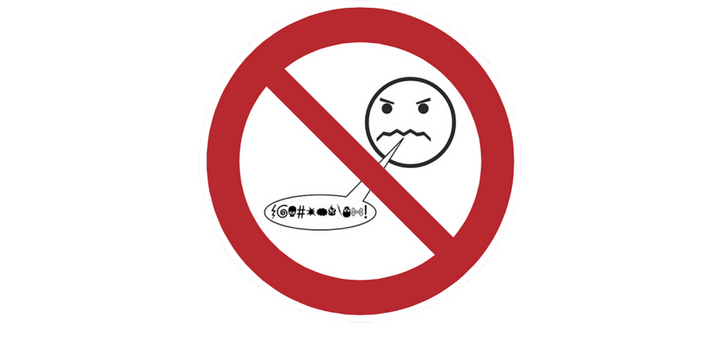
 Via Pixabay (2016), CC0 Public Domain[/caption]
I recently read a post from someone I consider a fairly strong Catholic voice; however, it was laced with a significant swear word and I found myself inclined to tune out and not take the post seriously. There is a meme that says, “I’m a good Catholic (or Christian) who happens to swear a lot.” It got me thinking: Can you be a good Catholic and use bad language?
We cannot judge someone’s heart by their words alone, but we are cautioned in Scripture:
Via Pixabay (2016), CC0 Public Domain[/caption]
I recently read a post from someone I consider a fairly strong Catholic voice; however, it was laced with a significant swear word and I found myself inclined to tune out and not take the post seriously. There is a meme that says, “I’m a good Catholic (or Christian) who happens to swear a lot.” It got me thinking: Can you be a good Catholic and use bad language?
We cannot judge someone’s heart by their words alone, but we are cautioned in Scripture:
“If anyone thinks he is religious and does not bridle his tongue but deceives his heart, this person’s religion is worthless.” (James 1:26)Ephesians 4:29 says, “Let no corrupting talk come out of your mouths …” and continues,
“Let there be no filthiness nor foolish talk nor crude joking, which are out of place, but instead let there be thanksgiving.” (Ephesians 5:4)All of our body parts, including our mouths, are supposed to be used to glorify God. We need to ask ourselves if the way we talk glorifies God. If it does not, is it necessary? Is it righteous? Is it, perhaps … sinful? An article by Nicholas Hardesty on the subject of Taming the Tongue, reminds us of this need to honor God with our speech and then goes on to say (in regard to the Catechism of the Catholic Church),
“Conversely, abusive language is forbidden by the fifth commandment [CCC](no. 2073), and anyone who is angry with his brother is liable to judgment (no. 2302-2303). Respect for the reputation of persons forbids every attitude and word likely to cause them unjust injury (no. 2477). Finally, cussing often includes taking God's name in vain, and this is certainly forbidden, as is language against the Church, the saints, and sacred things (no. 2148).”As a writer and English teacher, I must admit a bit of personal bias. To me, swearing or cursing seems lazy. I can think of a dozen more interesting ways to address a comment rather than fill it with expletives. Having said all this, I too sometimes swear. I try not to, and I think that writing curse words is much more intentional than sputtering out one, but I too am guilty. No one is perfect, and as with all sinful behavior, swearing can become a habit and a very difficult one to break. We can seek reconciliation in the sacrament of Confession and start over. We are called to be holy and our language should reflect that. In this environment of hostility and divisiveness, perhaps changing our language to a gentler, more precise tone would be a good start to bringing back civility in our society.
Copyright 2018 Mary Lou Rosien
About the Author

Mary Lou Rosien
Mary Lou Rosien is a Catholic wife, mom to seven, educator, writer, and speaker. She is the author of several books including Three Things Divorced Catholics need to Know and The Joy-Filled Broken Heart. She is known for her love of all things cooking and baking, especially “Friday cookies.” Visit her at CatholicFamilyBootCamp.com.


.png?width=1806&height=731&name=CatholicMom_hcfm_logo1_pos_871c_2728c%20(002).png)
Comments